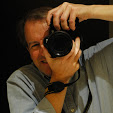"A
decade ago when Hu Jintao and Wen Jiabao were installed as China’s
president and premier respectively, one could have been fooled into
thinking that the process by which they were selected ran like
clockwork. Indeed, some apologists for Beijing’s authoritarian rule have
argued that the way in which the Communist party picks its leaders is a
model of technocratic rule. Prospective candidates for top slots are
groomed over years in the most demanding jobs the vast country has to
offer. The competition is ferocious. But the process lacks some vital
ingredients. It is neither transparent nor accountable.
...
"There
are some steps, well short of the full-blown democracy so feared by the
Communist party, that could be taken. First, dissidents such as Liu
Xiaobo, the Nobel peace prize winner, and others should be released.
What most of these political activists are demanding is enshrined in
China’s own post 1949 constitution. Mr Wen’s rhetoric is incompatible
with silencing such people and depriving them of their liberty. Second,
there should be more experiments with genuine democracy, if only,
initially, at the village, county and township levels advocated by Mr
Wen. Here the experience of Wukan,
a village in southern China that organised its own election after
expelling corrupt officials is instructive. It is mildly encouraging
that the Communist party in Guangdong, where Wukan is located, chose to
let the elections proceed rather than sending in troops as some feared."
FT: http://www.ft.com/intl/cms/s/0/c268c15e-6fa3-11e1-b368-00144feab49a.html#axzz1uZv1lYYg
Subscribe to:
Post Comments (Atom)

No comments:
Post a Comment